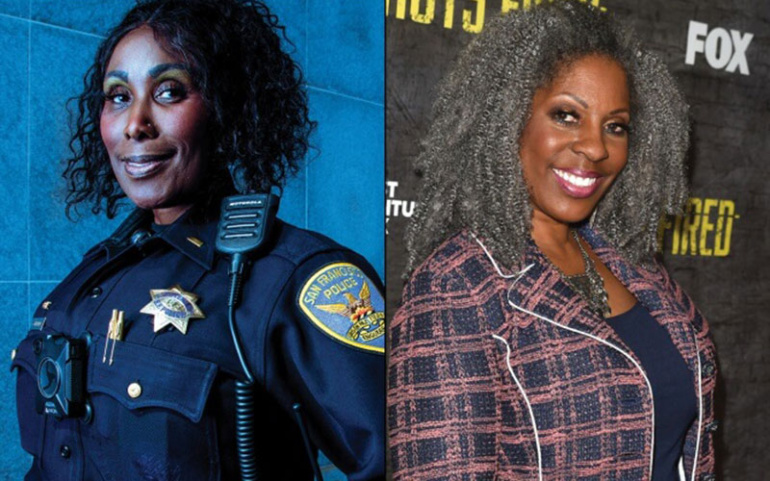An Interview with Black Women Police Whistleblowers Yulanda Williams and Cheryl Dorsey
The department is meant to tear a police officer down in the academy and then recreate that officer in the image the police department likes. A subtle form of brainwashing occurs for some.” Cheryl Dorsey, Black and Blue: The Creation of a Manifesto
In the national debate about and outrage over police misconduct, excessive force and accountability, retired Los Angeles Police Department sergeant Cheryl Dorsey and San Francisco Police Department lieutenant Yulanda Williams are on the frontlines pushing back against institutional injustice within their ranks. As African American women officers in predominantly white, predominantly male departments, they have weathered sexism, racism, and job discrimination in their most pernicious forms.
Dorsey joined the LAPD in 1980 and quickly became disgruntled with the barriers to advancement as well as the rampant violence directed toward African American and communities of color.
Yulanda Williams joined the SFPD after surviving the 1978 massacre of Peoples Temple members in Jonestown, Guyana. In 2016, Williams was the only officer of color to testify against the SFPD’s culture of racism and sexism on a Blue Ribbon Panel on police misconduct.
Dorsey and Williams discussed the challenges of “police reform”, the explicit and implicit bias of over-militarized police departments in the aftermath of Stephon Clark’s killing by Sacramento Police, and the contradictions of recruiting more officers of color for a police regime which has a slave catcher lineage.
Let’s talk a little bit about your careers. What inspired you to go into law enforcement as African American women?
Cheryl Dorsey: I joined the LAPD because I wanted benefits and stability. I came in with the consent decree. I was expedited in the hiring process. I realized that the LAPD offered more opportunity than the DOJ, my previous employer, however, there were certain positions that were unavailable to me as a Black woman. Coveted administrative staff jobs in research and auditing were unavailable. Those were the most sought after vis-à-vis getting promoted to sergeant or lieutenant. They would fabricate reasons for why you couldn’t get them (you didn’t have enough time on the job or needed to be on patrol).
Yulanda Williams: Let me first insert this disclaimer, my responses are based on my own personal experiences as a Black female in law enforcement. I am not speaking for my department. Initially, I applied for a position with the San Francisco Sheriff’s Department but I scored higher on the SFPD position. Although I accepted the position with the SFPD, I was determined to remain an individual based on my experience surviving Jonestown.
Throughout my career, I have been known as one of a select group of officers who are not afraid to challenge, speak up about, and document injustices and disparate treatment. These experiences have led me believe that some officers sense there is an urgency to deprogram Black officers; especially if there are questions regarding their loyalty or commitment to “Blue”.


Add Comment